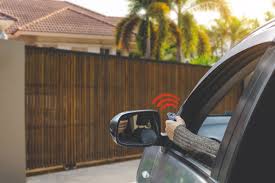Table of Contents
Introduction
In the world of home security, garage door sensors are your vigilant guardians. These unsung heroes play a crucial role in safeguarding your property, alerting you to potential breaches and ensuring your peace of mind. But with a plethora of options available, how do you choose the right one for your needs? Fear not, as we unravel the mystery of choosing the perfect garage door sensors.
Types of Garage Door Sensors
Understanding the various types of garage door sensors is key. From the classic contact sensors that detect when the door is opened or closed, to sophisticated motion sensors that monitor movement within the garage, each type has its unique strengths. Wireless sensors offer convenience, while wired sensors are known for their reliability.
Factors to Consider
When it comes to selecting the ideal garage door sensors, several factors come into play:
- Compatibility with Garage Door Systems: Ensure the sensor aligns with your specific garage door setup.
- Range and Detection Distance: Opt for a sensor with a range that suits your garage’s dimensions.
- Sensor Technology: Delve into the nuances of infrared and ultrasonic sensor technologies.
- Weather Resistance: For outdoor installations, weather-resistant sensors are a must.
- Power Source and Battery Life: Decide between the convenience of batteries or the reliability of wiring.
- Installation Complexity: Are you up for a DIY challenge, or would you prefer professional installation?
- Alert Mechanisms: Consider whether you prefer audible alarms or smartphone notifications.
Popular Garage Door Sensor Brands
Reputable brands vie for your attention in the world of door sensors. From industry giants to innovative newcomers, we explore the best players in the market.
Steps to Install Garage Door Sensor
Embarking on a sensor installation journey involves a few key steps:
- Gathering Necessary Tools and Materials: Equip yourself for a successful installation.
- Locating Ideal Sensor Placement: Discover the prime spots for optimal sensor performance.
- Mounting the Sensors: Follow a step-by-step guide to securely mount your sensors.
- Wiring and Connection Setup: If you opt for wired sensors, learn the intricacies of proper wiring.
- Testing the Sensors: Before celebrating victory, ensure your sensors pass the functionality test.
Maintenance and Troubleshooting
Maintaining the efficiency of your garage garage door sensor is vital. Regular maintenance, such as cleaning the sensors and checking battery levels, ensures they remain reliable. However, should you encounter issues, our troubleshooting section offers solutions.
Benefits of Quality Garage Door Sensors
Investing in high-quality garage door sensors translates to:
- Enhanced Home Security: The peace of mind that comes from knowing your property is safeguarded.
- Peace of Mind: You’ll rest easy, confident in your home’s protection.
Conclusion
In a world where security matters most, selecting the right door sensors is a priority. With our comprehensive guide, you’re armed with the knowledge to make an informed decision that aligns with your needs.
FAQs (Frequently Asked Questions)
- Do all garage doors require sensors? Absolutely. Garage door sensors are essential for safety and security.
- Can I install garage door sensors on my own? Certainly. Many sensors come with DIY-friendly installation instructions.
- What is the lifespan of garage door sensors? Typically, well-maintained sensors can last several years.
- Are wireless sensors more convenient than wired ones? Wireless sensors offer easier installation, but wired ones may provide greater reliability.
- How do I know if my door sensors need replacement? If you notice inconsistent or faulty behavior, it might be time for a replacement.
Unlocking the Future: How Smart Garage Door Sensors Are Revolutionizing Home Security

